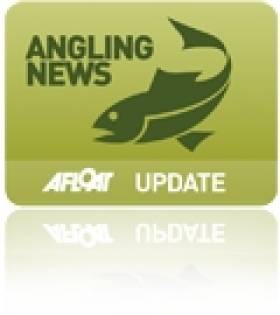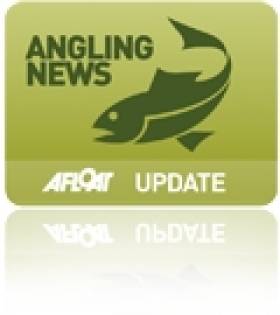Displaying items by tag: spawning
Salmon Conservation Scheme Extended to 2012
#ANGLING - Inland Fisheries Ireland's Salmon Conservation Scheme has been extended into 2012, with funding increased to a total of €200,000.
The pilot scheme will facilitate the rehabilitation of salmon stocks, giving priority to rivers below their conservation limit which have the greatest prospect of recovery.
Applications are now being invited for salmon conservation projects, to a maximum value of €10,000 per project. Applicants must outline the benefits of the project, the ability to plan and complete the project, and value for money. Any statutory approvals necessary, such as planning permission, must be in place.
Examples of schemes that can be funded include: fish passage improvement; spawning enhancement, instream structures such as weirs and deflectors; river bank protection; tree pruning and planting; and removal of invasive species.
Minister for Communiations, Energy and Natural Resources, Pat Rabbitte, commented: "This scheme has been proven to enhance habitat, knowledge and ultimately the wonderful angling and commercial fisheries we enjoy in Ireland adding benefit to local economies."
Application forms are available from the Inland Fisheries Ireland website HERE.
The closing date for applications is 31 March 2012.
Minister Opens White River Fishery Enhancement Project
#ANGLING - Minister of State Fergus O'Dowd was on hand at the opening of the White River enhancement project in Dunleer, Co Louth earlier this month.
The €32,000 project was funded by the Louth Leader Partnership, with works were carried out by the Dee and Glyde Fishing Development Association and the Dundalk district staff of Inland Fisheries Ireland.
The White River, a tributary of the River Dee, is considered hugely important as a spawning and nursery area, and it has already seen significant improvements in the levels of juvenile salmon and trout.
Instream enhancement works began in 2006, supervised by Inland Fisheries Ireland, and included the introduction of new gravel, weirs, deflectors and spawning beds which have helped the White River to achieve its potential in terms of fish numbers.
Speaking at the launch, Inland Fisheries Ireland CEO Dr Ciaran Byrne said: "The work that I have seen on the river is fantastic and a credit to all involved."
IFI assistant inspector in Dundalk, Ronan O’Brien, said project was based on restoring the natural features of the river.
He added that the programme was a great recognition of the work carried out by the Dee and Glyde Fishing Association, and that it had strengthened links with local business and development groups and could be used as a template for other projects in the area.































































